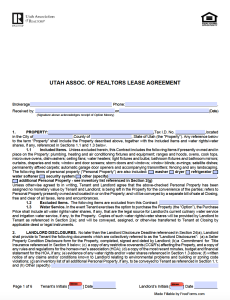
The Utah lease agreement publishes the information referring to the details of a property rental arrangement and associated payment schedule for its use. The contract lists pertinent information of the transaction complete with contact information, property address, lease duration, payment timetable, limiting provisions, and security deposit amount. Once executed, the form will be a binding legal commitment on behalf of all involved parties.
Rental Application – For the objective of finding a dependable tenant, this form demands certain details about a potential renter’s life that can be used to confirm their eligibility for leasing a property.

Association of Realtors Version – An officially formatted version of the leasing paperwork created by the Association of Realtors located in the state of Utah.
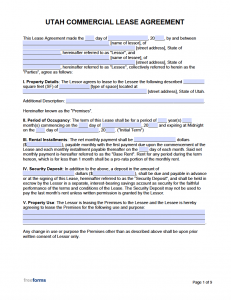
Commercial Lease Agreement – Creates a written ledger documenting the details of the rental of real estate for the purpose of conducting business activity.
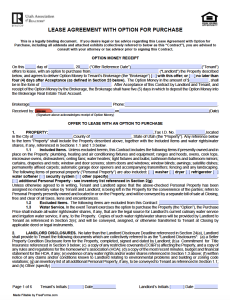
Lease to Own Agreement – Authorizes an option for the tenant to have first right of refusal to acquire a property at the termination of the contract.
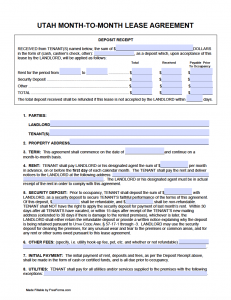
Month-to-Month Lease – A document put in place and executed to contract the renting of residential space for a duration of time with the specification that either party can terminate with the advance notice of thirty (30) days.
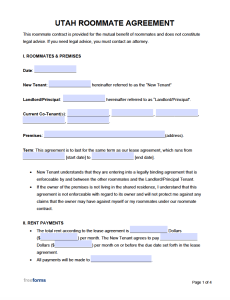
Roommate Agreement – Paper evidence validating an arrangement for an individual to utilize a room and a cooperative space for a designated amount of time.
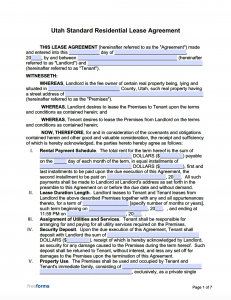
Standard Lease Agreement – Categorizes the commitments to record the particulars contained in a property rental bond.
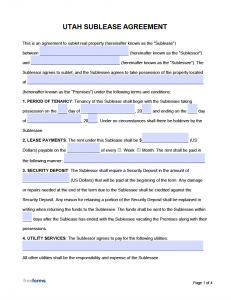
Sublease Agreement – Qualifies tenant use of a property, granted by a person that is actively renting at the time of sublease.
The specifics regarding lessee and lessor involvement in the leasing of real estate is thoroughly circumstantiated within the Utah Code Title 57 Real Estate.
Move-In Checklist – At the beginning of a leasing term, the landlord is required to furnish a checklist for the tenant to evaluate the condition of the premises. The tenant will then assess any issues, indicate them in the sheet, and return to the landlord within seven days (§ 57-22-4).
Lead-Based Paint (42 U.S. Code § 4852d ) – Federal legislation calls that for any property constructed before 1979, the landlord must include written warning of any risk of lead-based paint within the domicile to prospective tenants. An indication in the lease agreement must be stated and accompanying literature distributed to all individuals entering into the agreement.
Utah statutes do not regulate a particular amount of time in which a tenant can be allowed grace for late payments. This may be clarified by the landlord or owner in the content of the lease agreement.
For an owner to rightfully demand fees for late rental payments, explicit language relating to exact late fees and possible grace period must be enclosed in the contract. The state of Utah does not impose a limit on the amount a landlord can request for late compensation of monthly rent.
When employing the use of a personal or business check to make a rental payment, should it be rejected for insufficient monies in the account, it could be subject to a charge. For a fee to be enforced, it must be identified in the lease agreement and can be no more than $20 for each case ( § 7-15-2).
Limitation of the amount an owner can lawfully demand as a deposit from a potential renter is not established in any of the Utah Code bylaws ( § 57 – 17 ).
State law stipulates that the security deposit for residential rental properties must be returned within thirty (30) days of the tenant vacating the premises at the end of the lease. The amount refunded to the renter will be the full amount of the deposit, subtracting the cost of any defects or damages from the property other than normal wear and tear issues ( § 7-17-3).
An agent of the owner or landlord will be allowed permission to enter the dwelling as long as the individual renting is informed twenty-four (24) hours ahead of time ( § 57-22-4). Access to the unit will be granted for any reasonable maintenance or building emergency ( § 57- 22-5 ).